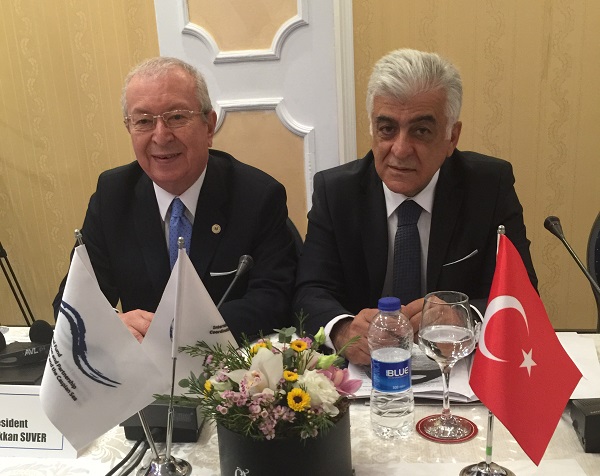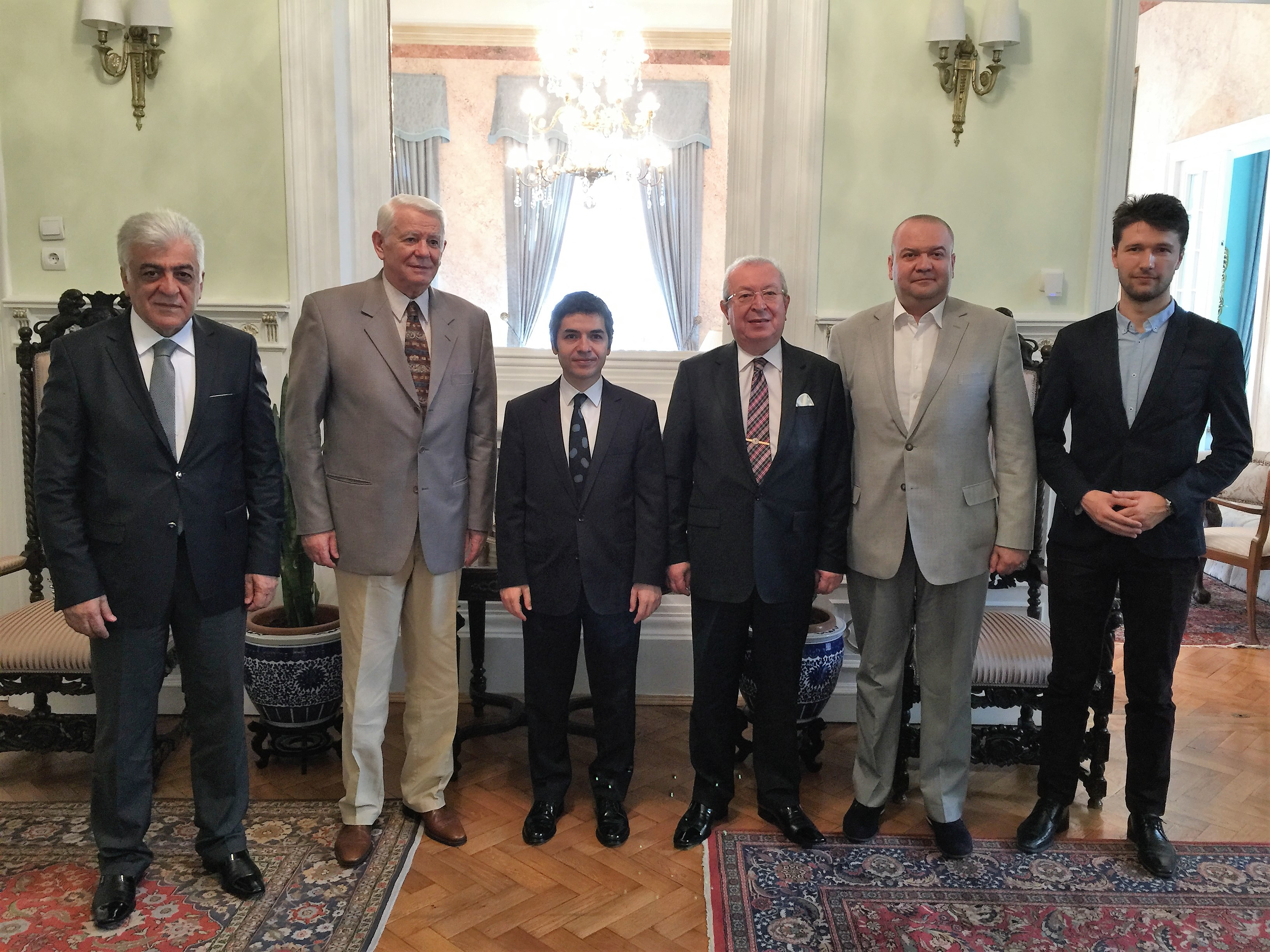DR. SUVER HOLDS A SPEECH AT THE GENERAL ASSEMBLY OF THE BSCSIF
On behalf of the Marmara Group Foundation, Dr. Akkan Suver and Mr Şamil Ayrım attended the General Assembly of the Black Sea and Caspian Sea International Fund (BSCSIF) having been held in Bucharest and shared their opinions with the regard to the Black Sea Policies.
During the General Assembly, Dr. Suver extended his views related to the security issues of the Black Sea region.
As follows, you can find the whole address of Dr. Akkan Suver accordingly;
As a man of peace and dialogue and the co-founder of the fund, which was presided by me in 2013, I would like to greet your delegation with my warmest regards and respects.
The Black Sea has recently upgraded its importance as a geographical region in relation to its own exclusive position over the energy lines. On one hand, Russia applies all intervention methods to gain her former sphere of influence in the region and ensure its control over the energy lines, whereas the Black Sea Countries have generally turned their face to the West and to the European Union, in particular. On the other hand, the United States aspire to have access into the region with the aim of ensuring her sphere of influence as well. Within the course of the Western integration and as regards the economic cooperation, Black Sea Countries have preferred to conform to the EU and encountered, therefore, many security problems which Russia has been involved in. It will take long time to settle disputes in the region which has been a part of struggle taking place between Russia and Western countries.
Apart from these points, Turkey, which initiated a pioneering role in founding the Black Sea Economic Cooperation Organization, has failed to generate creative projects owing to her strong orientation to accession of the EU.
Following the end of Cold War era and as a consequence, it has become more difficult for Turkey to handle – separately – the relations with the neighbouring countries. For example, it seems almost impossible, in this context, to evaluate the Russia–Turkey relations without considering the Balkan and Caucasian affairs of both countries.
It goes without saying that subsequent to the dissolution of Union of Soviet Socialist Republics (the USSR), Turkey has enlarged her ethnical and cultural boundaries stretching from the Black Sea and Caucasia to the Central Asia. When these regions perused together, there are three countries which cannot be disregarded at all; Russia, Iran and Turkey.
Turkey’s approach for the region is to opposing to any foreign actors seeking to intervene in the affairs of region and attempts undermining the Montreux Convention of Straits. As part of this policy, a consensus aiming to keep the status quo in the region has been achieved together with Russia.
Ankara emphasizes the importance of BSEC, BLACKSEAFOR and Black Sea Integration and has advocated the view that security threats in the region, which are exaggerated intentionally, have been intervened through available means aforementioned. Neither Ankara nor Moscow would like to see the region destabilized and they do underline accordingly the principles of democracy and stability.
In the following years, the Black Sea Region will further be on the focus point of strategic calculations. The region which seems to be under the influence of many regional and global dynamics is on the verge of a turnout. Either under axis of influence of the Euro-Atlantic approach by turning its face to the West, which is considered more transparent, democratic and predictable, or becoming a part of the enlarged Europe or turning into a region where the influence of the Russian Federation is prevalent. In each two scenarios there are two key factors. First, the approaches of Europe (France and Germany) and US to the region. Second, Turkey’s balancing policy envisaged for the available directions by means of democracy and stability.
In conclusion, on account of the change of the priorities and interests taking place in the international system, Black Sea Region has become more important especially for EU and US. The ideological transformations the region countries going through within their own means have urged these countries to the West. Although the US and EU have approached the region on their own terms, the main goal of both countries is to establishing closer relations and implementing certain strategies in the region. Of those, the approach of US demanding, for Turkey, an amendment of some articles related to the Montreux Convention of Straits have triggered some anxieties. The Black Sea region has remained to be a conflict area for great powers. For the regional peace, it is crucial that Turkey maintain her role as a balancing actor between the EU, Russia and US.



